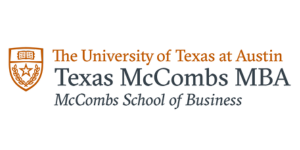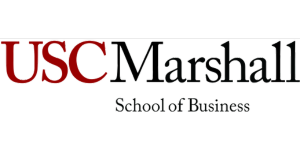FREE DOWNLOAD
Example MBA Resume Templates From Top Programs
Download and compare example MBA resume templates from graduates who landed their dream roles after attending programs like Kellogg, Columbia, McCombs, Wharton and more.
We know that the perfect resume doesn’t equal the perfect candidate.
But let’s face it, resumes are gatekeepers into any organization. Whether you’re in-person at Harvard or spending your nights and weekends in an online program, everyone deserves equal access to the tools required by employers to succeed.
That’s why we’re sharing a variety of program resume templates – success shouldn’t hinge on pedigree, it should hinge on showcasing your true potential.
Download, adapt, and land the job you deserve.

Navigating Template Differences:
While different schools offer resume format guidelines, ultimately, there’s no one-size-fits-all approach to showcasing your skills and experience. Many example MBA templates involve personal preference and formatting tweaks. For instance, the Chicago Booth template prioritizes work experience, while others lead with education.
Remember, you should tailor your resume to highlight what’s most relevant to target companies. Are you currently completing an MBA? Leading with your student status might showcase your dedication and current focus. However, if your work experience aligns strongly with the roles you seek, prioritize that section instead.
Download Resume Templates From:













Don’t see your school? Help us level the playing field by uploading your program’s template below.
Upload files |
Frequently asked questions about resumes:
What are some general tips for my resume?
It’s important though to be concise and efficient. No more than two or three lines per bullet point should suffice. Your resume generally should only be one page long so use that space wisely! It may be difficult to try to get all of a project’s experience down to one bullet, but remember that you’ll be able to talk about it more deeply during interviews. The resume should be a place to showcase the highlights first.
Lastly, formatting can be a game changer. Use the same font across the resume. Align things appropriately. Be consistent in your bullets, abbreviations, and dates. Spell check!
Do I have to include an 'additional information' section?
While by no means a requirement, additional information areas can provide companies with a deeper understanding of who you are. Consider using this to talk about your volunteer experiences, languages, technical skills, certifications, community involvement, and interests that you have outside of a business setting. This section is a wonderful opportunity to give companies a taste of your personality.
Should I tailor my resume to each job application?
Part of applying for jobs is doing the research first. Read through the job descriptions and understand the skills that the companies are looking for in their hires. You can try to mirror some of those words that are applicable in your application. Make sure to insert them into your resume details in a natural way. In other words, it’s not the best idea to make a laundry list of random words: “Strategy. Operations. Cross-Functional. Technology.” This is meaningless! You’re probably wondering what that actually entailed; the hiring manager is questioning that as well. It’s better to say something like “Managed cross-functional teams across finance, strategy, and operations to accomplish a technology implementation project that drove $Y increase in year-over-year sales.”
What if I don’t have relevant experience?
Don’t underestimate your existing skills! Before moving on, revisit the job description and carefully understand the qualities the company seeks. Now, compare your current and past positions to those desired qualities. Even if the context differs, are there transferable skills or experiences you can leverage? By highlighting these relevant past experiences, you can effectively market your talents for the targeted role.
Here’s a breakdown of skills popular MBA functions often recruit:
- Marketers: Emphasize your ability to collaborate with cross-functional teams, analyze data to refine strategy or products, and prioritize the customer experience.
- Consultants: Consulting firms seek individuals with strong problem-solving skills, industry expertise (functional or technical), and excellent communication and collaboration abilities.
- Investment Bankers: Companies like Goldman Sachs value individuals who are comfortable with numbers, are analytical thinkers, and possess strong communication and interpersonal skills. Given the industry’s fast pace, time or project management skills are also highly desirable.
- Product Managers: If you have a technical background (web development, UX, writing requirements, market research, etc.), highlight it. Pivoters can emphasize their communication and teamwork skills. Additionally, demonstrating a customer-centric approach through relevant experiences will impress potential employers.
- Strategy: Skills in market research, data analysis, collaboration, communication, and problem-solving are essential. Highlighting projects where you analyzed trends to inform strategic decisions or showcased critical thinking will be beneficial.
- Operations: Bring attention to any experience you have with operations, supply chain, or logistics. Additionally, detailing your experience working across teams will be valuable.
- Corporate Finance: While comfort with numbers and financial analysis is crucial, also highlight your proficiency in financial modeling or tools, budgeting experience, and your ability to collaborate with cross-functional partners.
